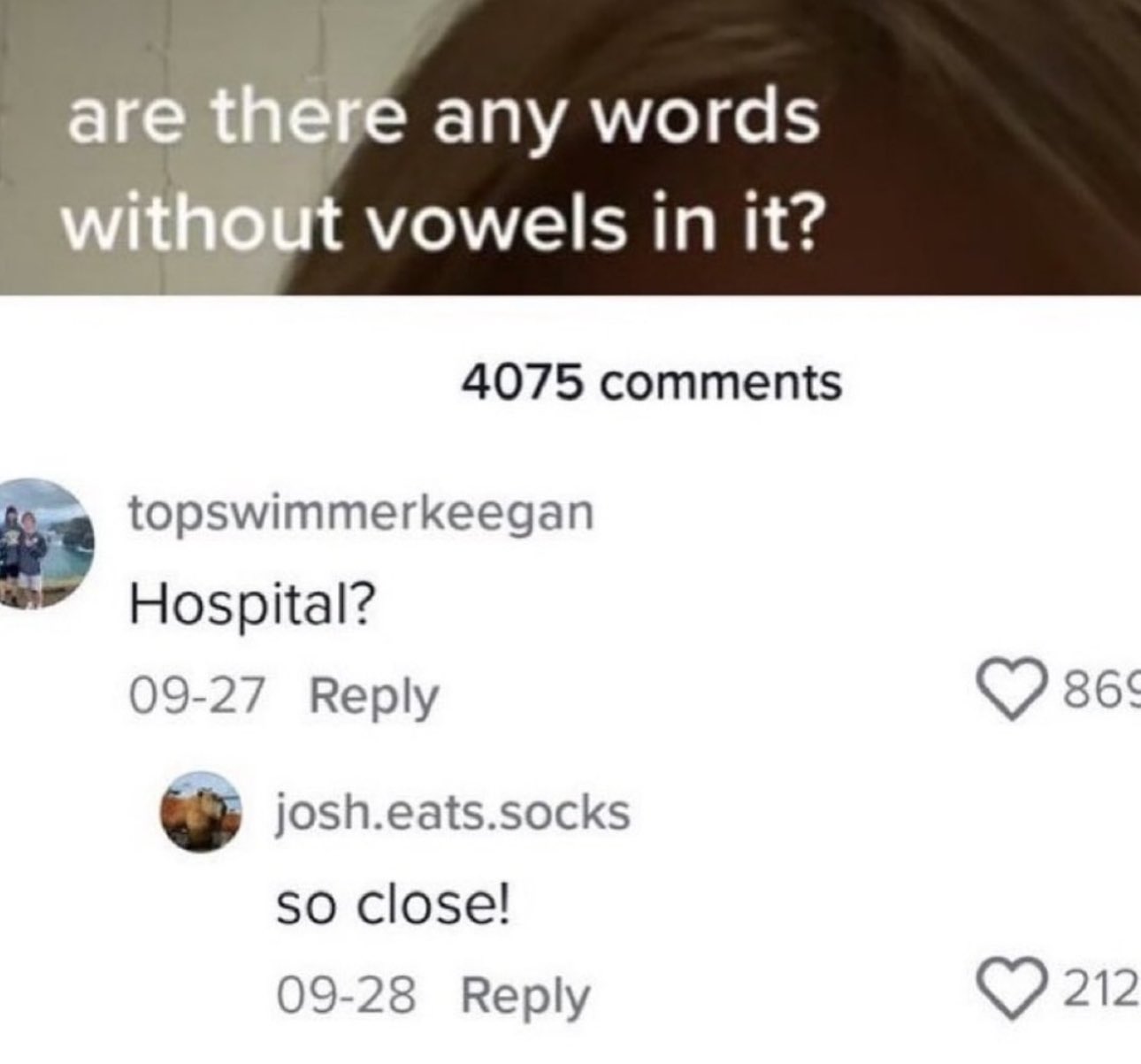this post was submitted on 31 Dec 2023
244 points (94.2% liked)
Funny: Home of the Haha
6006 readers
964 users here now
Welcome to /c/funny, a place for all your humorous and amusing content.
Looking for mods! Send an application to Stamets!
Our Rules:
-
Keep it civil. We're all people here. Be respectful to one another.
-
No sexism, racism, homophobia, transphobia or any other flavor of bigotry. I should not need to explain this one.
-
Try not to repost anything posted within the past month. Beyond that, go for it. Not everyone is on every site all the time.
Other Communities:
-
/c/[email protected] - Star Trek chat, memes and shitposts
-
/c/[email protected] - General memes
founded 2 years ago
MODERATORS
you are viewing a single comment's thread
view the rest of the comments
view the rest of the comments

Spelling-wise? Depends on what you mean by "vowel" and "word" – vowel isn't really a term for letters/spelling, it only really makes sense in a phonemic/phonetic context. So, phonetically? Yes – i.e. words that only have a rhotic in the nucleus like "curd" which is just [kɹ̩d] in many rhotic dialects like most American English, "and" is often pronounced [n̩], "can" can be [kn̩]~[kŋ̍], "full" can be pronounced [fʟ̩] in some dialects (includinɡ mine). You can also include paralinguistic words like "shh" [ʃ̩].
I was going to post a less in depth reply along the same lines. Don't know why you're being downvoted.
I also don't get why you're being downvoted so much. Great answer.
In these examples such as curd and full, isn't shwa the vowel? You can't actually not have a vowel if you pronounce it.
/ɚ/ in American (including Canadian) English as in "nurse", "curd", "certain", is usually labelled a "rhotacized vowel" in a phonemic context but it's more precisely described as an approximant (due to the fact that it has some constriction around the palato-velar area, uvula, glottis, molars, and/or labio-dental area, depending on which variety you speak). And as I said, "full" is pronounced with no vowel in certain varieties.